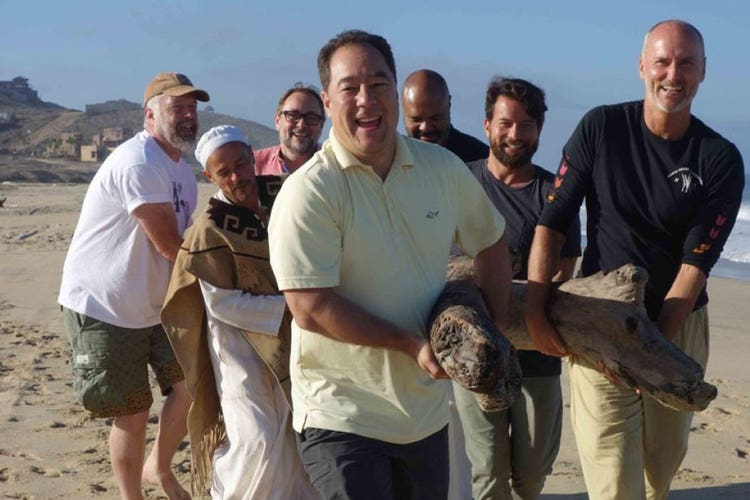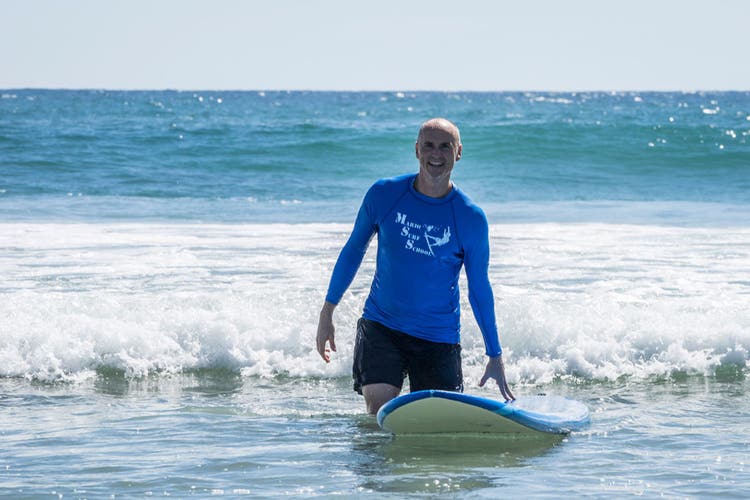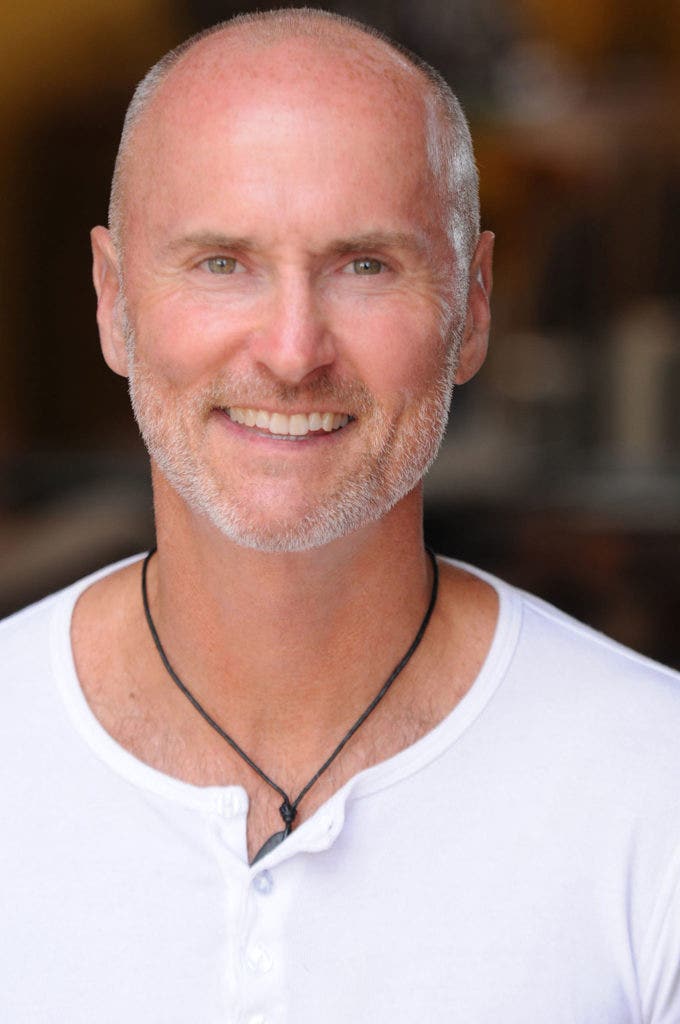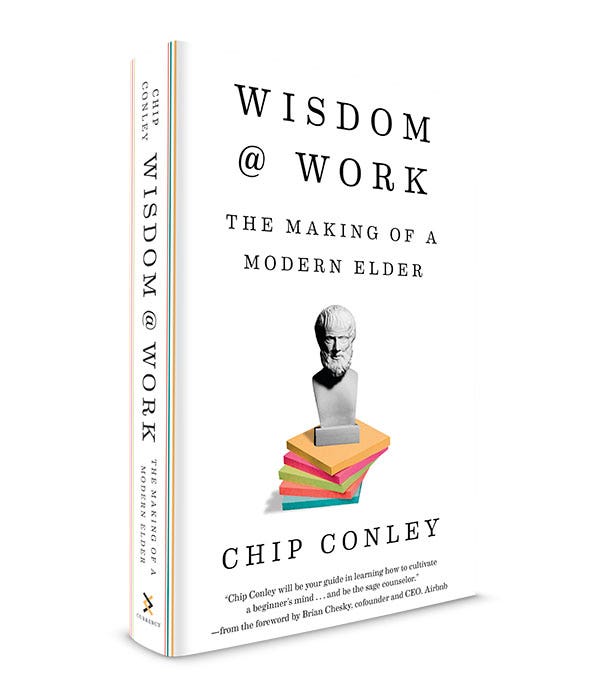Chip Conley Makes the Case for Wisdom—Cultivating and Sharing It

When Chip Conley was 26, he started Joie de Vivre Hospitality, which would eventually become the second-largest boutique hotel company in the U.S. Twenty-four years later, he would sell it at the bottom of the recession.
A couple years later, he would join a tech company where the average age of the employees was 26 and whose mission was to democratize hospitality. He knew nothing about tech. But Airbnb’s founders had reached out to him for help. That was seven years ago.
“I was the mentor,” Conley says, “and still am the mentor to Brian [Chesky], the CEO. But I was also an intern. Because I was learning as much about technology and millennials and about venture capital in Silicon Valley as I was helping teach leadership and emotional intelligence, and strategy and things like that in hospitality.”

The elder intern

During those first days at Airbnb, someone said to Conley: “Oh, you’re our elder.”
“I was like, ‘Really? Am I elderly?’ And I quickly learned the difference between elder and elderly. Elderly might be the last five or 10 years of your life. But an elder is a relative term. It speaks to who you’re surrounded by. And I was a boomer among millennials. So yes, I was an elder. But I was a modern elder,” Conley says.

“A modern elder is relevant because they better be as curious as they are wise. Curiosity means that you actually learn about the context of where you are, you have to ask questions. I had to understand what is it like to be in a tech company,” he says. “I was learning from them, and they were learning from me.”
Conley literally came in to collaborate and co-create at the same time. It is a situation that doesn’t put you on the defense or the offense. Many of us find ourselves in Conley’s position, in which our perspective almost dictates how we think about ourselves and then how we show up in the world.
The secret is to develop a mindset that allows you to be able to be both curious and perspective. You either have always approached things this way or cultivated it. In Conley’s case, he’s cultivated it.
“I’m lucky that I sort of grew up with it,” he says. “I went to Long Beach Poly High School, which is Snoop Dogg’s High School. And so I was pretty much like the other. I love the fact that it taught me very early on in my life to understand people different than me and have a mindset that’s not narrow.”
Eventually, Conley came to learn about a woman named Carol Dweck and her work with the growth mindset. “Her book ‘Mindset’ really speaks to the idea that we can have a fixed mindset in life work or a growth mindset,” he explains. “A fixed mindset means you’re constantly trying to prove yourself and you want to win all the time because it gives you self-esteem. A growth mindset, on the other hand, is based on the premise that you’re not trying to prove yourself, you’re trying to improve yourself. Success is then defined by learning not winning, and therefore you have a bigger sandbox.”

The new midlife challenge

At Airbnb, Conley had to get used to the idea that after being CEO of his own company, he was reporting to someone 21 years his junior, even though he was his boss’ mentor. This experience isn’t that different from others in the workplace in midlife—40 percent of us today have a boss who’s younger than us, and by the year 2025, the majority of Americans will have a boss younger than them. That’s a big change, and that means you have to get used to the idea that you’re often going to be in a position in which you’re learning from someone younger than you.

And it is at this moment in your life—in your 40s and 50s—that most people reach the bottom of the U-curve of happiness. That is basically the midlife crisis. Conley has an equation to define it:
Disappointment = Expectations – Reality
“What happens is by your mid-40s, your expectations in life compared to the reality—whether it’s with your career or your spouse, family, your aspirations, etc.—not only are you overburdened with too much on your plate, which is often how people feel in their mid-40s, but you’re also feeling like, ‘Wow. I had some expectations that I now feel like I’m never going to be able to attain.’”
According to Conley, by your mid-50s, you change those expectations. It’s the great midlife edit—when you start to let go of the things in your life that no longer serve you or aspirations that you need to actually just let go of. Then you shift your mindset to create a world where the things that you have in it are the things that you want in it, as opposed to the expectations that you’ve inherited from your parents, society or your younger self.
To address this, Conley has created a place called the Modern Elder Academy, which is the world’s first midlife wisdom school. The whole premise of the school is to help people shift their mindset in midlife so they can navigate these natural transitions that happen. “The Modern Elder Academy is meant to be a preparatory for what elderhood is going to bring you now or in the future,” Conley says. “So long story short, this kind of thinking is necessary in a world where the average longevity is growing.”
Cultivating wisdom and being wise

Conley’s definition of wisdom really relates to the idea of pattern recognition. “Somebody who’s wise,” he explains, “has developed a pattern recognition based on their experience that allows them to sort of see things before other people notice them and see things in other people as entrepreneurs see opportunities in the world—based on intuition.”
Luckily, you can cultivate wisdom. One of the ways Conley has is by making a list of the key things he learned during the week and then asking himself: What were some lessons that I had? And what gave me some sense of meaning?

By creating this space of reflection so you can digest and metabolize experiences, it allows you to make new contributions to the world. It takes it to the next stage and gives it our own life context.
This is how to cultivate wisdom. Next, find the habitat where your wisdom’s going to be appreciated and needed. “Being able to find a place where your wisdom matters is, I think, one of the key things for people as we get older,” Conley says.
Chip Conley in 12 Questions

Meditate.
What’s the last thing you do before you go to sleep?
I listen to a guided meditation.
Do you prefer a particular style of meditation?
I do Transcendental Meditation, but I also really like silent meditation retreats. So on occasion, I will do a silent meditation retreat—sometimes as long as a week. Though sometimes it’s a day where I just am silent.
What’s your No. 1 travel tip?
No. 1 travel tip is to occasionally, if you can, bring your favorite pillow with you.
What is the last book that you read?
“How to Live Forever” by Marc Freedman.
What is the next vacation you’d like to take?
I’d like to go to Iceland. I love hot springs, so I want to experience the hot springs there.
Do you have a favorite podcast or audio experience that you like to listen to?
I’m going to say Tim Ferriss—just because he’s my friend (laugh).

“Beautiful Day” by U2 (laugh). When I’m trying to get pumped before going and giving a speech onstage, I’ll listen to that.
What food you cannot live without?
Chocolate. No doubt. Chocolate.
What do you see as your strength?
Social alchemy.
What do you do in those moments when the shit hits the fan and you need to reset or handle stress?
Close my eyes and breathe.
Imagine you had the ability to whisper in all our members’ ears or maybe the entire world. What would you say?
Only connect. E. M. Forster wrote that at the start of one of his books. And it really speaks to the idea of how we are all connected—in ways we don’t even imagine.
https://www.youtube.com/watch?v=OCvBkBbTqSo
Video credit: courtesy of Chip Conley
Photo credit: courtesy of Chip Conley; Dylan Gillis, Unsplash; Ben White, Unsplash; Lisa Keating